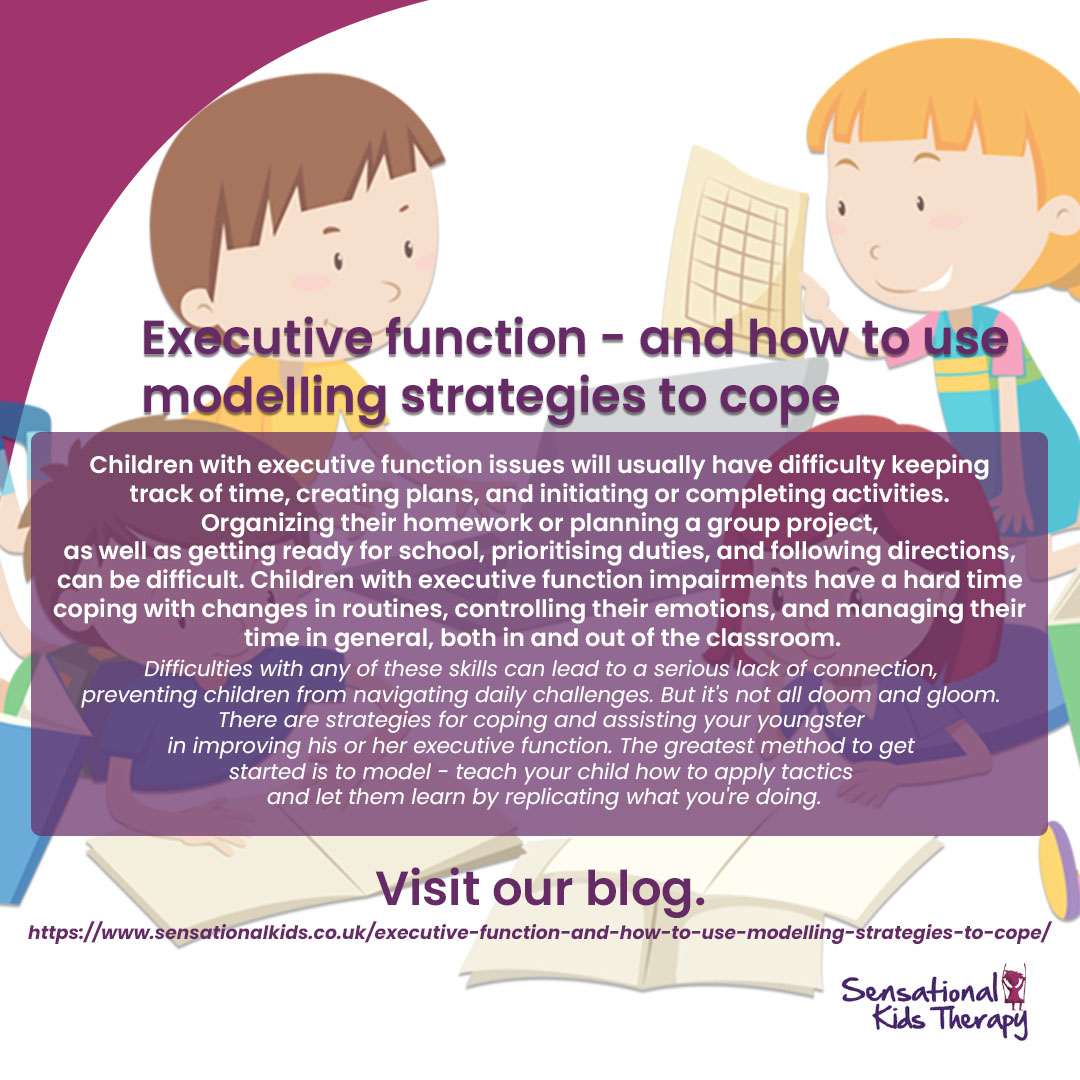According to Harvard, “Executive function and self-regulation skills are the mental processes that enable us to plan, focus attention, remember instructions, and juggle multiple tasks successfully. Just as an air traffic control system at a busy airport safely manages the arrivals and departures of many aircraft on multiple runways, the brain needs this skill set to filter distractions, prioritise tasks, set and achieve goals, and control impulses.”
Put simply, these are ‘higher-order’ thinking patterns and skills that allow us to live. When we make plans, organise, prepare, pay attention, and follow directions and instructions at home, school, and work, or on the playground, we are using our execution function skills.
Children who have problems with their executive function, will invariably struggle with keeping track of time, making plans, and starting or finishing activities. Organising their homework or planning a group project might be tough, along with getting ready for school, prioritising tasks, or following directions. More broadly, and away from the classroom, children with executive function issues often find it hard to cope with changes in routines, to control their emotions, and with general time management.
Difficulties in any of these skills can cause a real struggle with connection, and prevent children from being able to navigate daily challenges. But it’s not all bad news. There are ways to cope and to help your child improve their executive function. The best way of beginning is through modelling – showing your child the strategies they can use, and letting them learn by copying what you’re doing.
You can support your child’s executive function by teaching and modelling strategies such as:
- Using checklists effectively – not just making a list, but actually using it
- Packing their bags the night before – use their timetable to see what they need and don’t need. This avoids unnecessarily heavy bags
- Using timers on the phones/watches or tablets to keep them on track
- Breaking big assignments into chunks
- Writing the date at the top of each page or assignment
- Organganising their work into folders for different subjects
- Making visual charts of routines or chores which can easily be followed to stay on track
- Tidying up after themselves – a sandwich is only made and ready to eat once you have cleared up
Executive Function difficulties often look like the signs of Attention Deficit Hyperactivity Disorder. That’s because ADHD is a problem with executive function. “Many researchers now agree that we can write an equation saying: “ADHD = developmental impairment of the brain’s executive functions.”
There’s plenty more written on the subject, and lots more tips and advice in my own book Parenting the Conundrum Child. I’d love to hear about your modeling experiences and how they’re working for your own conundrum kiddos.

